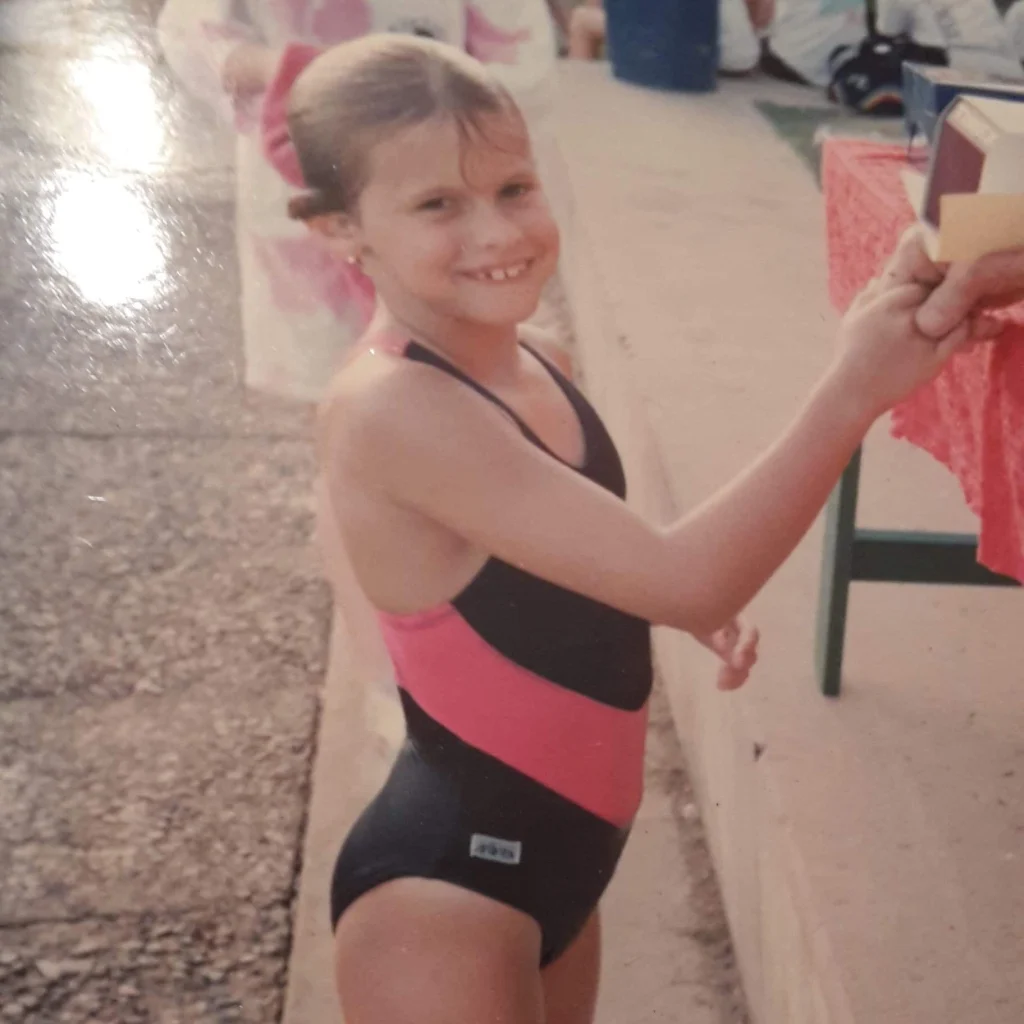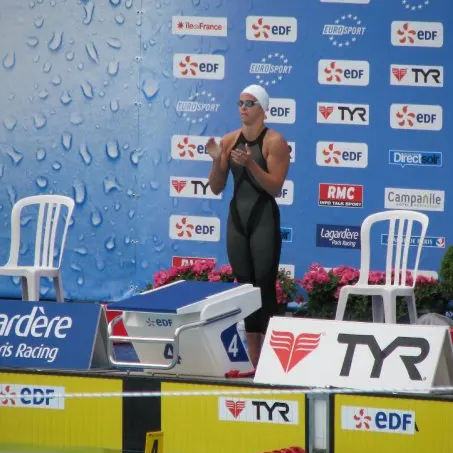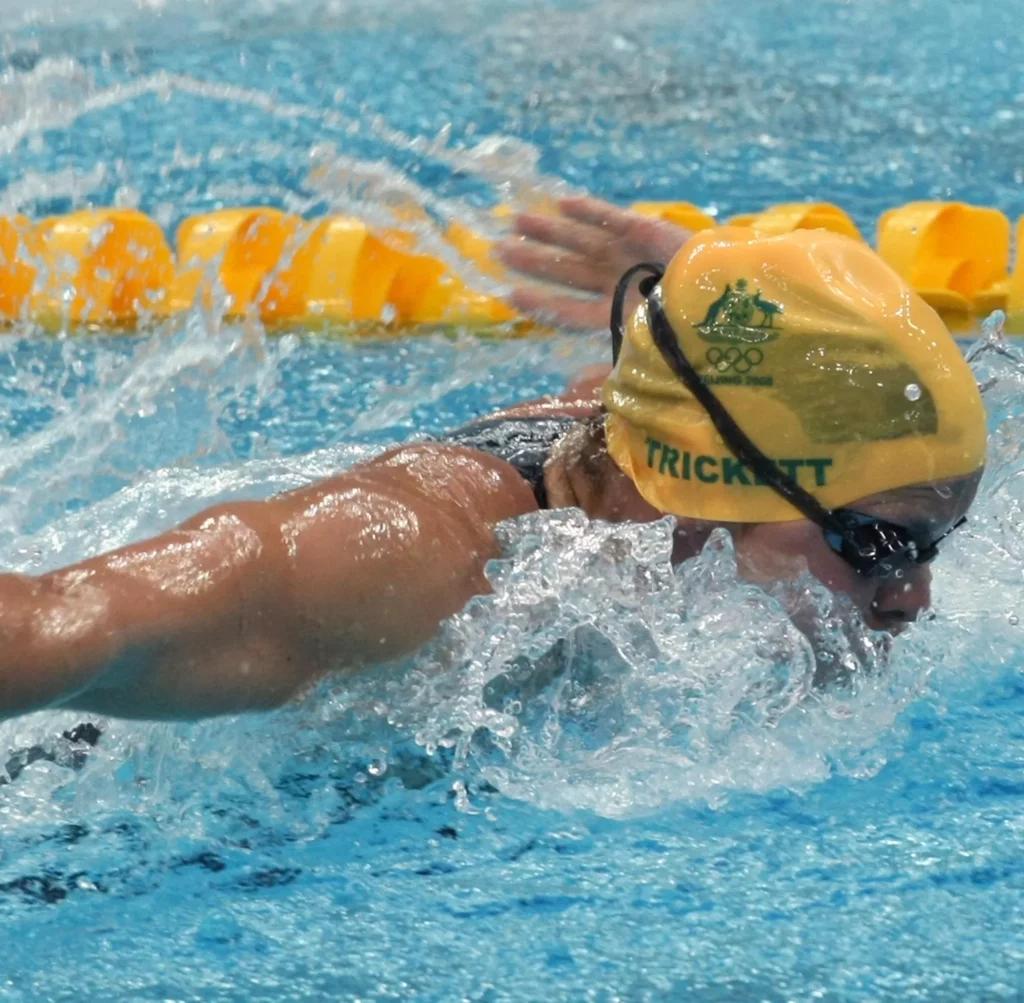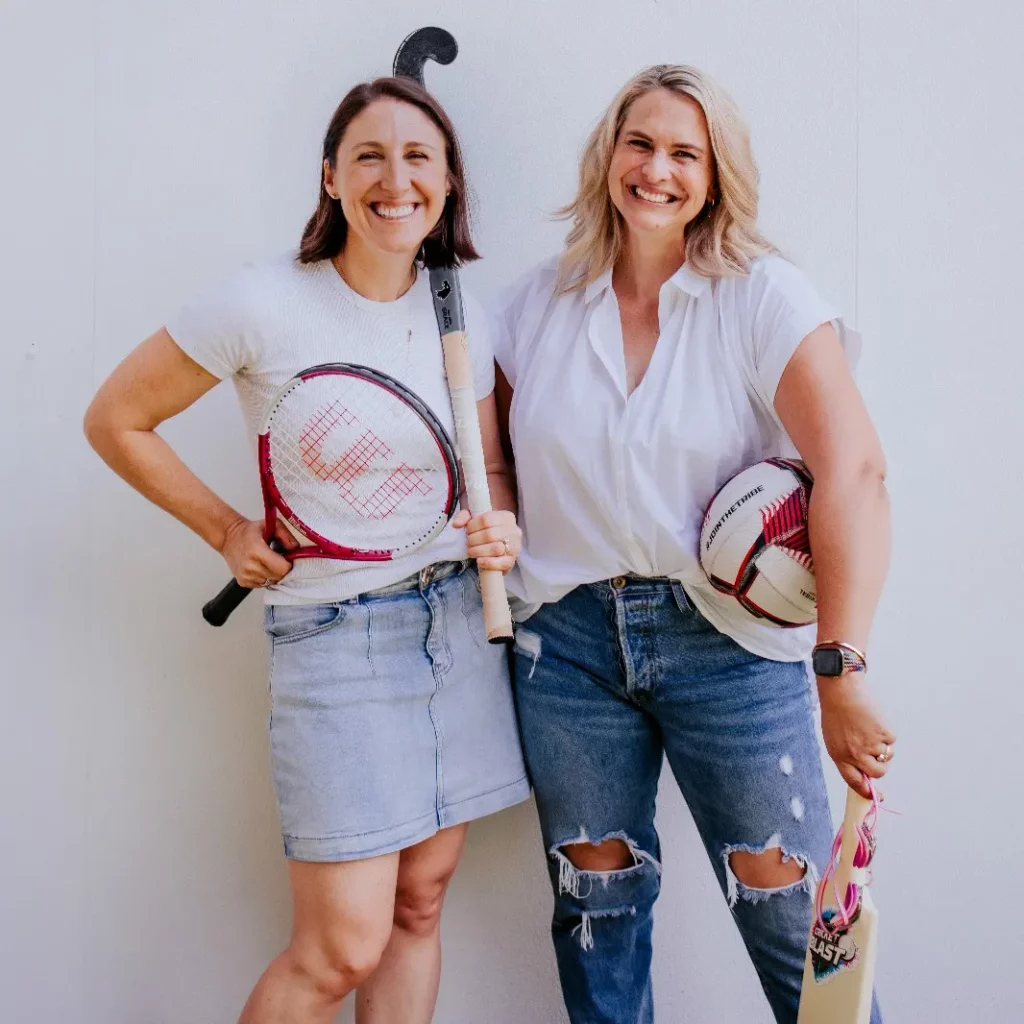Beyond her stellar career in the pool, Libby inspires people of all ages as a charismatic TV personality, podcaster, motivational speaker, and host of The Embrace Collective’s Activate Masterclass. Her candid views on sport, inclusivity, personal growth and body image are making waves from grassroots sport to the professional leagues.

Libby’s story
Libby, the youngest of four, grew up in Townsville, North Queensland, where water sports were a big part of life. She started swimming lessons at one and joined her first club at four, sparking a lifelong love of sport and competition.
“I loved going super-fast and seeing what my body was capable of, and then I realised that hard training made me even faster,” she says.

Navigating the tricky years
Like all teenagers, Libby faced the normal changes of puberty as her body grew, which were amplified by her athletic physique.
“Every teenager goes through an awkward phase with their body — it’s constantly changing, and you just don’t know what it is anymore. You want to fit in. I felt that way in school, but at the pool with fellow swimmers, I felt at home. There were other people with big shoulders and muscles, and it felt like a comfortable, familiar group. I had the privilege of representing Australia at the World Champs. Seeing everyone there with their incredible physiques, I thought, ‘Yeah, this is where I’m meant to be.'”
By the age of 15, Libby’s athletic physique grew stronger, but she struggled with the desire to fit in and feel attractive by society’s standards off the pool deck.
“I always had broad shoulders and more muscles than most girls. A boy I thought was a friend once called me a ‘butch bitch’, which made me feel weird and unattractive. It was devastating because I was trying to be ‘normal’ while figuring myself out. It was obviously before I knew what my body was capable of and what those muscles would mean in my life. It took a long time to become comfortable with my body, and thankfully, it didn’t stop me from swimming. I’m a bit of a bulldog when it comes to things, but it was tough.”
While males face similar issues, Libby is vocal about body shaming being more common for females. “Every woman feels the pressure of not meeting society’s beauty standards. Female athletes go beyond, often having bodies that challenge traditional femininity — strong, tall, or large. They work hard to excel in their sports, which is admirable. But it’s tough when society says they don’t fit the standard of beauty and desirability.”
In the spotlight
In 2006, when Libby was 21 and preparing for the Commonwealth Games in Melbourne, public commentary on her body once again took centre stage when a newspaper featured a picture of her from behind, showing her back and muscles in a racing suit, alongside a photo of a Chinese swimmer, also from behind, known for doping.

“The comparison implied that I looked like someone using performance-enhancing drugs. It was surreal to have strangers making comments and inferences about my body without my involvement. There was no social media back then, so I had no way to respond. I had to navigate this situation as best as I could, with my coach supporting me and confronting the journalist,” Libby recalls.
“Despite this, I only grew stronger and more muscular because I was still young, and my body was continuing to develop through intense training. Comparing my body to a drug cheat was incredibly confronting, not just because of the focus on my body, but also because it questioned my integrity and what I’d do to win. It was infuriating.”
During that tough period, Libby dealt with her feelings privately, relying on her coach and her husband (who was also her training partner) for support. She found it challenging to open up to friends, unsure if they would fully understand her situation.
“I didn’t have the whole language to be able to talk about it, and so that was hard. I wasn’t even able to really talk to my friends about it because it was such a unique situation. I didn’t feel like they would understand. It’s a bizarre thing for anyone to have to deal with that at any stage of life.”
Changing perspectives
While Libby managed to push past the public scrutiny to excel in swimming, it wasn’t until later in life that she truly appreciated her body.
“During my swimming career, I was always focused on improvement — making my body leaner, stronger, faster. It wasn’t until much later, ironically, after having kids, that I took a step back to truly appreciate what my body could do. Despite the changes post-pregnancy, which some might see as less desirable (it’s the wobbliest and saggiest it’s ever been), I’ve come to deeply love and value it. I still have amazingly strong shoulders that let me carry two kids at once — my body is incredible!

“I’ve found gratitude for all my body has achieved — four Olympic gold medals, childbirth, breastfeeding, and enduring half marathons and 30km walking events. Though occasional critical thoughts still surface, they no longer carry the weight they once did. My focus now is on nourishing my body and enjoying the adventures it takes me on.
“I find it exciting to share with the younger generation that ageing opens up new possibilities instead of closing doors. When I was younger, I thought being in your late twenties meant you were finished, but approaching 40 now, I feel like my life is just beginning. There’s momentum in understanding what truly matters and the privilege of shaping the lives of those around us. It’s a thrilling part of growing older, hopefully making life a bit easier and healthier for others.”
The path ahead
“I’m just scratching the surface of how important swimming has been for me. It sounds dramatic, but I believe it saved my life. It provided structure, passion, and direction for me to thrive — not just in competition but in life. I continue to grow through sports and feel privileged for these opportunities — something that should be a possibility for everyone.
“Feeling part of something bigger than yourself, working together towards shared goals, lifting each other up — it’s a beautiful experience. Sport might not be everyone’s thing, but there’s a sport out there for everyone. It’s not just about elite performance or national competition; it’s about coming together at your local club and enjoying the community spirit.”

So, how do we go about ensuring sport is more accessible to everyone? In Libby’s eyes, it’s a significant challenge that requires action from national and international sporting bodies, as well as communities.
“It’s so important that we start seeing sports players at all levels as humans first and athletes second. If we could stop people from critiquing, judging and commenting on the sidelines, in the change rooms and on the field, it’s going to help keep girls in sport.”
For more of Libby’s inspiration, head to www.libbytrickett.com